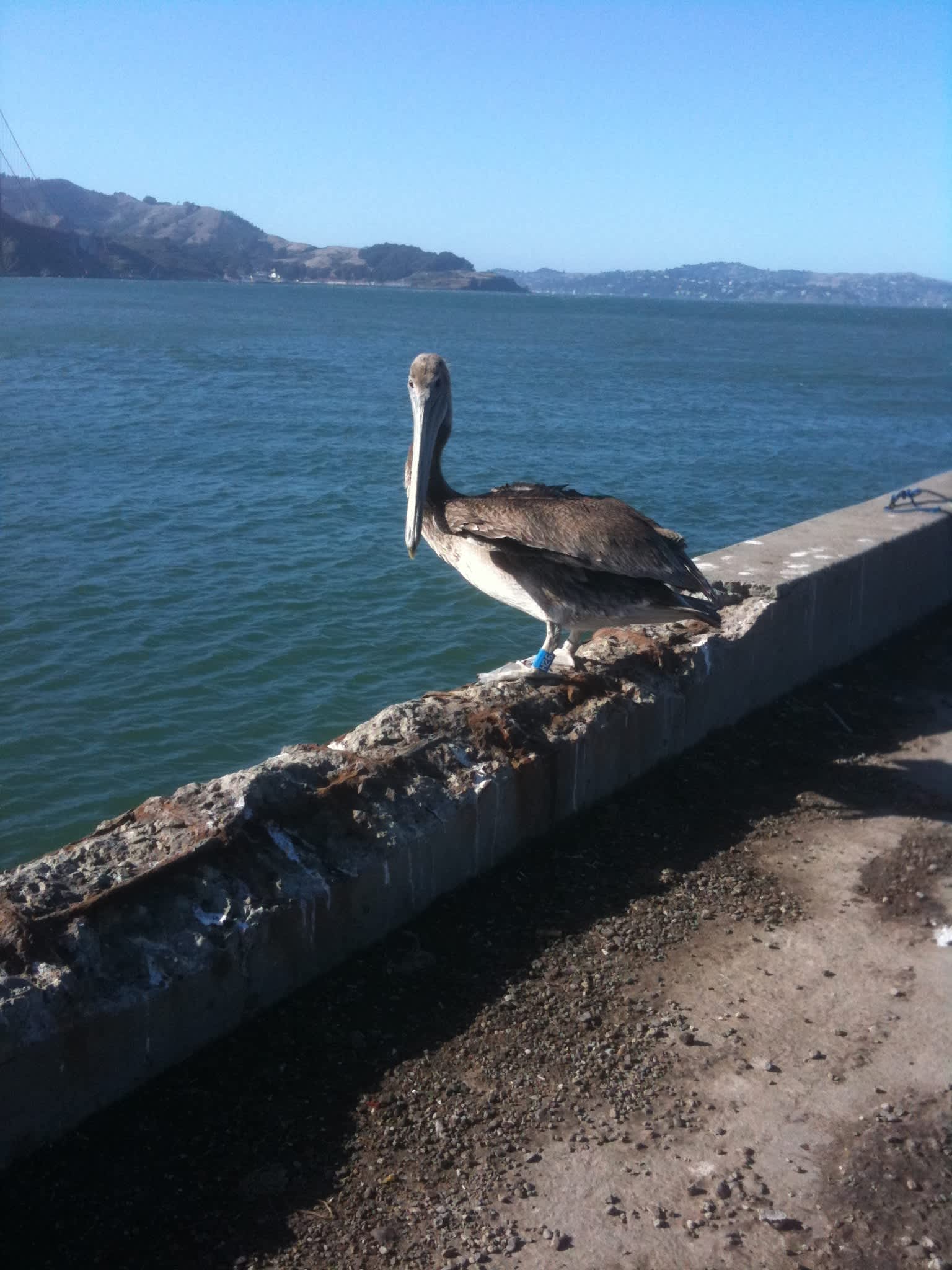California Anglers Advised to Exercise Caution When Fishing Where Seabirds Feed
OutdoorHub 09.05.11

The Department of Fish and Game (DFG) reminds anglers who fish along California’s shoreline and piers to avoid casting where seabirds feed or congregate. All along the coast, large schools of bait fish such as sardines and anchovies have recently been swimming close to the shore, thus attracting both anglers and hungry seabirds. Anglers should exercise extreme caution in order to enjoy their sport without injuring California’s wildlife.
Hundreds of birds, including the fully protected California brown pelican, have been injured or killed in recent years after becoming hooked or entangled as they are feeding on the same bait fish that anglers target, or when they try to snag the bait from the end of a fishing line. This has become a serious problem at the Santa Cruz Pier and Monterey Wharf in particular, where popular fishing piers are adjacent to or within feeding grounds for seabirds. Pelicans are particularly vulnerable because fishing piers and jetties also serve as roosting spots.
To make matters worse, many pelicans that linger in unenclosed areas where anglers clean their fish are becoming contaminated with fish oil. Fish oils compromise seabirds’ natural waterproofing and insulation, making them vulnerable to hypothermia when cold ocean water contacts their skin.
“When anglers throw scraps around or directly to the pelicans, it teaches them to bum for such scraps,” said DFG Wildlife Biologist Esther Burkett. “Saving them requires expensive capture, cleaning and care at a licensed rehabilitation facility. It’s far easier to exercise caution and take steps to prevent the problem in the first place.”
Sport anglers can help protect wildlife by not casting their fishing lines in close proximity of feeding birds and disposing of fish-cleaning scraps in secure containers with lids.
If you see injured pelicans or other seabirds that could be captured by trained wildlife handlers, please call one of these wildlife rescue organizations:
Santa Cruz County – Native Animal Rescue: (831) 462-0726
Monterey County SPCA: 831-646-5534
San Francisco Peninsula – Peninsula Humane Society: (650) 494-7283 or (650) 340-8200
Marin County – Wildcare: (415) 453-1000
Bay Area – International Bird Rescue: (707) 207-0380
Arcata – Marine Wildlife Care Center: (877) 823-6926
Morro Bay – Pacific Wildlife Care: 805-543-WILD (9453)
Statewide – Wild Care: 866-WILD-911
In other areas, please call your local humane society or SPCA
More wildlife rescue organizations are listed on the Oiled Wildlife Care Network’s webpage at www.owcn.org/about-us/participant-organizations.
DFG urges anglers and anyone who visits the shoreline to never chase or feed pelicans or other seabirds. Other ways to avoid hooking or entangling seabirds are listed in California Seabirds: Give Them a Break, Not a Line, on the DFG website atwww.dfg.ca.gov/marine/seabirds.asp.

